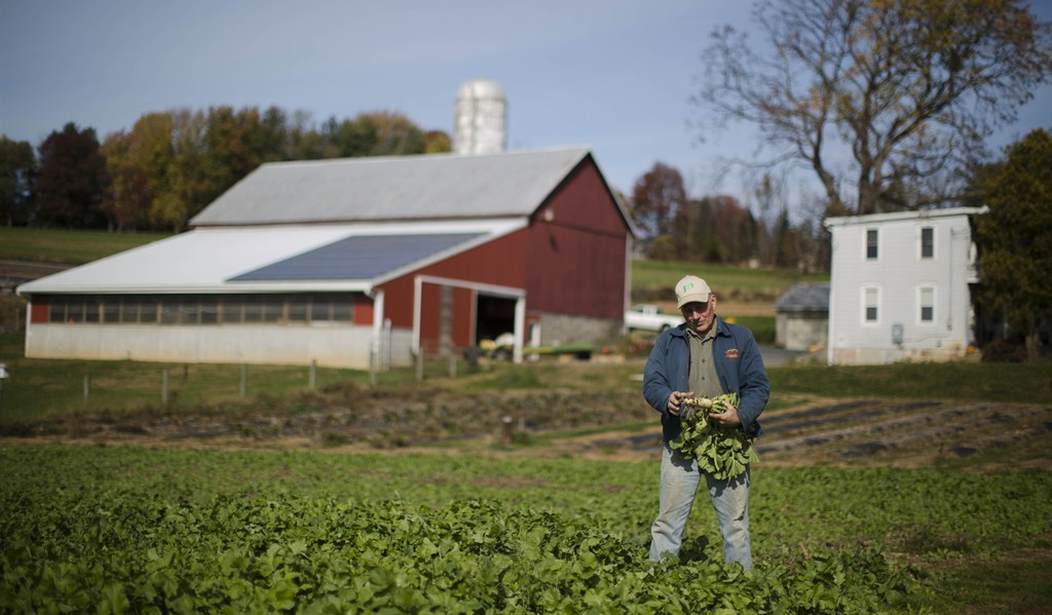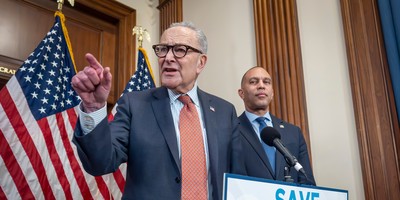I love the holiday season. Certain food specialties make their once-a-year appearance on our table. As we all sit down to bountiful meals this holiday season, it’s easy to forget the quiet battle raging over our nation’s food supply. For months on end, the House and Senate have been struggling to pass a farm bill, surrounded by conflict and debate. Although the part of the farm bill that has received the most publicity has been the proposed cuts to the food stamp program, the rest of the bill should be just as controversial. The legislation is of course full of “green” energy subsidies, which pour billions into everything from ethanol to wind and solar, and about which I have written extensively in the past. But it will also undoubtedly continue the outdated practice of subsidizing crops, from corn and wheat to cotton and tobacco.
Most modern farm subsidies trace their origin to the Great Depression. During the 1930s, severe drought and poor farming methods led to the Dust Bowl. This series of dust storms eroded much of America’s top soil and severely damaged agricultural production. In response, Congress authorized Federal crop insurance as a way to help offset the losses that threatened to bankrupt farmers.
Of course a lot has changed since then. The small family farm is largely a thing of the past, and a huge percentage of our country’s crops are produced or coordinated by large corporations. We have also learned various techniques to prevent topsoil erosion, including crop rotation and windbreak utilization. And as in any other business, farmers—both family and corporate—take steps to hedge against the various risks inherent in their industry.
Yet despite these advancements, federal farm subsidies have grown, not shrunk, and enjoy widespread support from both major political parties. The New York Times reported that millions of these federal dollars find their way into the pockets of billionaires. According to the Times, “The billionaires who got the subsidies [between 1995 and 2012] have a collective net worth of $316 billion, according to Forbes magazine.”
The absurdity of these outdated policies has been obvious for years. In fact, President H.W. Bush, President Clinton and President G.W. Bush all tried to cut or end farm subsidies, but failed to make a dent. Duke University economist Marc Bellemare and political scientist Nicholas Carnes are attempting pinpoint the reasons for the apparent immortality of agricultural subsidies. The short answer, as reported by the Washington Post, is that farm owners (both corporate and family) and their employees still exercise a great deal of political influence in key states.
Recommended
It is completely understandable that those who receive federal farm subsidies would pressure their legislators to keep them coming. But what about those who are harmed? Let’s look at just one unintended consequence of corn subsidies as an example. Between 1995 and 2012, 84.4 billion federal dollars have been directed to the growing and refining of corn. While this influx of tax money has kept corn prices artificially low, a tariff on foreign-produced sugar (in place in varying forms since 1789) has kept U.S. sugar prices artificially high. The combination of the corn subsidy and the sugar tariff is the reason that nearly everything in America—from Coca Cola and cookies, to bread and baby formula—contains high fructose corn syrup instead of simple table sugar.
Yet a growing body of scientific literature suggests that table sugar and high fructose corn syrup are not interchangeable sweeteners from a health perspective. Research suggests that the larger proportion of fructose in high fructose corn syrup has a destructive effect on the human metabolism. According to the USC study “High Fructose Corn Syrup and Diabetes Prevalence: A Global Perspective,” nations with a greater availability of high fructose corn syrup had rates of diabetes 20% higher than nations with lower availability, independent of obesity and national GDP. Of the forty-three countries studied, the United States had by far the highest per-capita consumption of high fructose corn syrup.
Diabetes is not only the seventh leading cause of death, but greatly increases one’s risk of other health problems including cardiovascular disease, stroke, and kidney disease. What’s more, type 2 diabetes disproportionately affects racial minorities in America. According to the Centers for Disease Control and Prevention, 18.7% of non-Hispanic blacks have type-2 diabetes, compared to 10.2% of non-Hispanic whites. And according to a study released by the American Diabetes Association, Latino youth have the fastest growing rates of both type 1 and type 2 diabetes of any ethnic group. Unsurprisingly, the costs of treating and managing diabetes run in the hundreds of billions of dollars annually.
So why are we spending billions of dollars of tax money to keep the price of corn low and the price of sugar high? Why are we giving millions of tax dollars to billionaires? This holiday season, maybe it’s time to give all of America a gift by ending agricultural subsidies once and for all.
























Join the conversation as a VIP Member